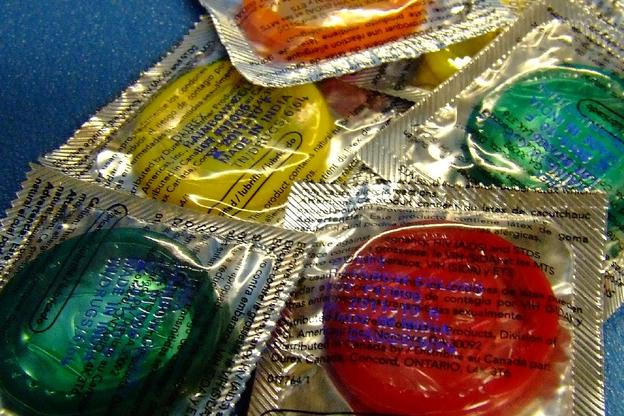Sexual Health
Common Sexual Problems And Dysfunction
What Is Sexual Dysfunction?
Sexual dysfunction is a clinical term, used by medical or mental health professionals to describe a sexual problem.
However, not all sexual problems are sexual dysfunctions. Definitions of sexual problems and sexual dysfunctions have changed with time, and can even vary from doctor to doctor.
Sexual problems can include lack of enthusiasm for sex or insufficient foreplay. Sexual dysfunctions are usually more serious and can be a mixture of psychological or physical factors.
Sexual Dysfunction In Women
Painful Intercourse
Sexual intercourse is not supposed to hurt, but a variety of things can make it painful:
- Infection – Any infection – from a yeast infection to a sexually transmitted infection – can irritate the vulva and the vagina and make penetration painful. If intercourse is painful, your first step should be a trip to the gynecologist to make sure you’re healthy. Once that is established, then you can move on.
- Lack of lubrication – One sign of sexual arousal in women is lubrication, or wetness, in the vagina. Lubrication decreases the friction of intercourse; without it, penetration can sting or hurt. The solution depends on the cause:
- It may be that your vagina is penetrated before you are aroused enough to produce sufficient lubrication. Slow down your lovemaking, take more time for foreplay and other kinds of sexual intimacy before having intercourse. This not only increases your wetness but also allows the vagina to expand and relax, further increasing the comfort of penetration. This is the solution in the majority of cases.
- Or it may be that your body produces less lubrication than you need for comfortable penetration. This is the case for many women and for a verity of reasons, ranging from hormonal changes, to just having longer lasting sex. In this case, you can supplement your natural fluids with a commercial lubricant like KY, ID, Astroglide, Wet Platinum, or many others. Remember oil-based lubricants degrade latex and should not be used with latex condoms or dental dams, while silicone based lubricants are not compatible with most silicone toys. Even for women with sufficient natural lubrication, extra lube can often make sex feel better and go more smoothly.
- Hormonal changes and some drugs can affect lubrication, as well. If this is a persistent problem, check your medications for possible side effects.
Vaginismus
Vaginismus refers to inability and pain of vaginal penetration, if wanted. Causes are varied, and in many cases, unknown. A good resource for identifying and finding resources is the ISSVD (International Society for the Study of Vulvovaginal Disease).
Dyspareunia
Dyspareunia is the technical name for “painful intercourse,” specifically irritation of the vulva, vaginal opening, or vagina due to trauma, infection, or anxiety. Women may experience pain at different times of their lives, and for different reasons (hormonal changes, anxiety, lack of interest in sex, and health conditions). Pain may be the result of insufficient lubrication, vaginal infections, or other vulvar problems, such as vulvodynia or vulvar vestibulitis. Medical advice can help identify and offer treatments for some conditions.
You might find The V Book: A Doctor’s Guide to Complete Vulvovaginal Health by Dr. Elizabeth Stewart helpful (vulvodynia and vulvar vestibulitis are discussed in this book). For additional information about vulvar pain, visit the web page of The National Vulvodynia Association.
Lack of Desire
First of all, it’s okay not to want sex. Being able to have sex does not mean you have to want it.
If you are in a relationship, a drop in interest can be problematic and stressful. It could be a signal that something else is going on – in your sex life, in your relationship, or in your day-to-day life. On the other hand, sexual interest does fluctuate in the course of many relationships, and throughout life but there are many ways you can boost your libido.
Here are some things that can affect your level of desire for sex:
- Some women, but not all, experience a decrease in libido from the pill or other hormonal birth control . This drop may level out over a few months. One solution is either to use a non-hormonal form of birth control or to try a different pill with a different hormonal mix and strengths until you find one that works best for you. Talk to your gynecologist about this.
- Other medications, such as some anti-depressants, have been shown to affect sexual interest and arousal in some women. Talk to your doctor if this is a concern.
- Changes in your lifestyle – losing a job, starting a new semester or moving to a new place – can all affect your sex drive. Stress in any form can have a debilitating impact on your sexuality. On the other hand, there are people who find that they seek sex when they are stressed or anxious. Either way, the best solution is to learn healthy ways to deal with stress: eat well, exercise, communicate, and seek help when you’re overwhelmed.
- Another thing to keep in mind is that desire comes and goes, like any bodily function. Sometimes you’re hungry and sometimes you’re not. Sometimes you want sex, and sometimes you don’t. Some fluctuation is normal and not necessarily a sign of dysfunction
Lack of Orgasm
Women’s sexuality has taken a complete reversal over the last 50 years, from denial that women even had orgasms to the pressure to have orgasms often and easily from intercourse. (How would some women’s magazines sell without “orgasm” on the cover?). All the same, every woman can have orgasms; and every woman’s orgasmic experience is very individual.
Never Had An Orgasm – For many women, learning what feels good and leads to orgasm is a learning experience. Whether it’s with a partner or with yourself, exploring what feels good is the first step to building up excitement towards the release of orgasm. Working towards a ‘goal’ can be pretty un-sexy, though, so take it easy on yourself, and just enjoy the process. Don’t expect to orgasm with every encounter, but do look for cues on what feels good – where the touching feels best and most arousing, how much pressure feels good on or around your clitoris and other genital areas. (see our Bodies resource page for more specifics…)
Can’t Orgasm in Certain Situations – For many women, it’s all about the right place and time, and the right movement or touch or stimulation, There’s nothing wrong with being selectively orgasmic!
Sexual Dysfunction In Men
Premature or Rapid Ejaculation
Ejaculating quickly, before you want to, is pretty common among young men, The duration of intercourse and other sexual activity can change as a guy ages and has more sexual experience. Here are the two common techniques you can use to train yourself to extend your sexual encounters:
- THE STOP-START TECHNIQUE: stop your caresses at a stage just short of the point of no return and allow your arousal level to subside slightly (say for half-a-minute) and then return to being caressed and repeat the process of stopping when you feel yourself near the point of inevitable ejaculation again. The difficulty at first is knowing when to stop, but with practice (on your own or with a partner), you can teach yourself a high degree of ejaculatory control.
- THE SQUEEZE TECHNIQUE: just before the point of no return you stop stimulation of the penis, and grasp the tip of the penis between fingers and thumb and squeeze firmly for 10 seconds or so. This reduces the reflex ejaculation response (and possibly the erection too) in the same way that biting your lip stops a sneeze. You can then resume stimulation and repeat the process if necessary.
You can read more about these techniques in the book “PE: How to Overcome Premature Ejaculation” by Helen Singer Kaplan.
Certain anti-depressants may mute sexual excitement, giving some added control. Your healthcare provider can talk with you about whether these prescription medications are a good option for you.
Condoms can also help many men last longer.
While for some men just the barrier of the condom can lead to longer lasting sex, condom manufacturers have created desensitizing condoms (also sometimes called “climax control condoms”). Such condoms have a numbing agent inside of them (usually benzocaine) which is intended to decrease sensation to the penis, and thus help men delay ejaculation.
Some men have skin reactions (itching, rashes, etc) to benzocaine or lidocaine – and a small percentage of men may lose their erection (after all, it is reducing sensation a little bit). Similarly, mentholated or cooling lubricant may also help prolong ejaculation, while warming lube or condoms often increase sensation and blood flow, speeding things up.
If you want to try these out, you might want to do so during masturbation to see what it will feel like for you. And be sure to use a condom to avoid vaginal or anal irritation.
Erectile Dysfunction
Inability to get an erection is more common in older men, but it certainly happens among younger men, as well. About half of all erectile dysfunctions are “organic,” meaning they’re caused by some physical problem. These physical problems can be anything that affects blood flow. So your first step is to go to the doctor and get checked out healthwise.
Another cause of ED is anxiety – either about sexual performance or just general life anxiety. The best solution is to learn anxiety reduction techniques with the help of a therapist.
Alcohol and amphetimines (such as Adderol) may reduce erectile function, temporarily.
Erectile drugs, such as Viagra, Levitra, and Cialis, can help strengthen light erections. They do not directly cause arousal.
Delayed Ejaculation
There are men who find that sexual activity persists and they can’t seem to reach a climax, either with a partner or through masturbation. This could be a side effect of some medications, such as anti-depressants, but most frequently, delayed ejaculation has a psychological component. Skilled sex therapists may be helpful in treating this problem.
Lack of Desire
Though more often noted as an issue for women, men, too, can lose interest in sex at various times and situations, or feel that they lack sexual desire. Emotional states, notably depression, can be a factor in lack of libido, as can conflict and stress. (see above)









